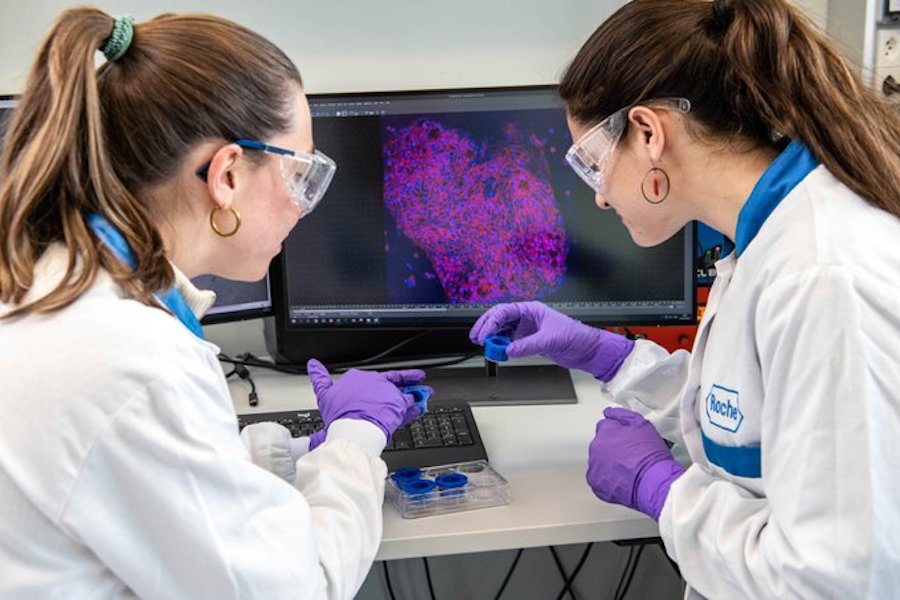Tokyo (SCCIJ) – The Swiss pharmaceutical company Roche has established an Institute of Human Biology in Basel. Up to 250 employees will be tasked with promoting the broad application of human model systems in pharmaceutical research and clinical practice.

The Institute of Human Biology founded by Roche will identify new drug targets (© Roche).
Modern approach
The new institute will focus on advancing research in the field of human model systems such as organoids. Leveraging these systems, it aims to accelerate drug discovery and development by improving the understanding of how organs function and diseases develop. Ultimately, this will help to bring medicines to patients faster. These efforts will also enable early testing of which drug candidates are safe and which molecules would work best for each patient.
Human model systems are miniature 2D or 3D living ‘replicas’ of human tissues and organs that scientists create from human stem cells. Because they mirror human and disease biology more accurately than animal models, they can also help reduce the reliance on animal testing. In addition, the systems may enable the discovery of new human biology and the identification of drug targets that are impossible to find with classical approaches.
“Human model systems are the future and have the potential to enhance almost all the steps involved in the research and development of innovative medicine”, says Prof. Dr. Hans Clevers, Head of Pharma Research and Early Development at Roche and a pioneer in the field of organoids.
Academia and industry
Thanks to the innovative set-up of the institute, scientists and bioengineers from academia and the pharmaceutical industry will work together at the newly launched institute based in Basel. Together, they will study human biology and advance the broad adoption of human model systems in pharmaceutical research and development as well as in clinical practice.
The researchers at the new institute can pursue exploratory basic research with great scientific freedom and also apply the latest basic research and cutting-edge technology and bioengineering know-how to real-world challenges. The insights gained will not only inform Roche’s drug discovery and development projects but many will also be made available to the broader scientific community and regulatory authorities.
University partners
The institute is expected to grow to around 250 scientists and bioengineers over the next four years. Its main academic partners are the two Swiss Federal Institutes of Technology in Lausanne (EPFL) and Zurich (ETHZ).
In particular, it will launch a joint doctoral program with ETH Zurich’s world-leading Department of Biosystems Science and Engineering in Basel. Together with EPFL, the institute works to deliver an automated robotic system for tumor specimen processing, drug testing, and immune phenotyping.
“The work at the Institute of Human Biology has the potential to redefine how we discover and develop medicines over the next decade”, says Dr. Matthias Lutolf, the institute head at Roche. “It is uniquely positioned in bringing together biology, bioengineering, and data science around human model systems and applying them to real-world challenges in drug discovery and research.”
Text: Roche (Editing by SCCIJ)





























